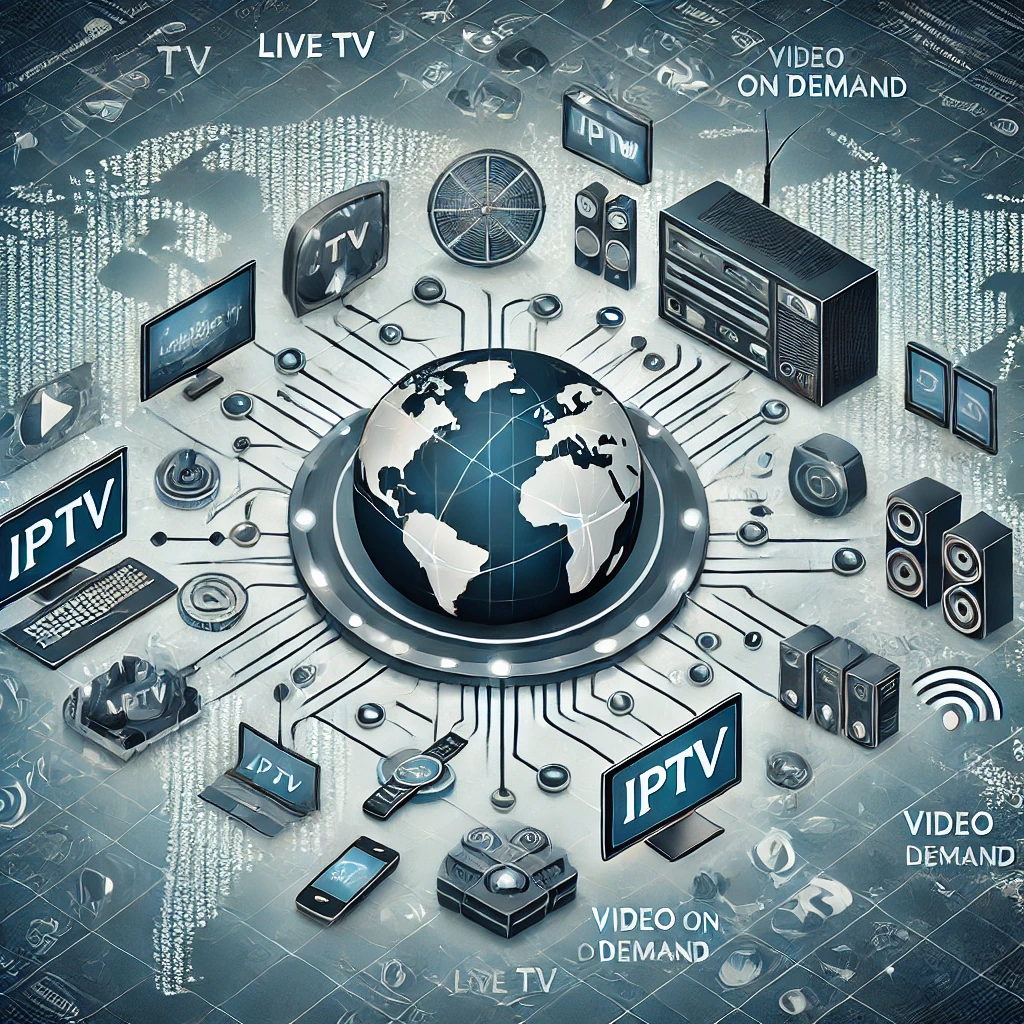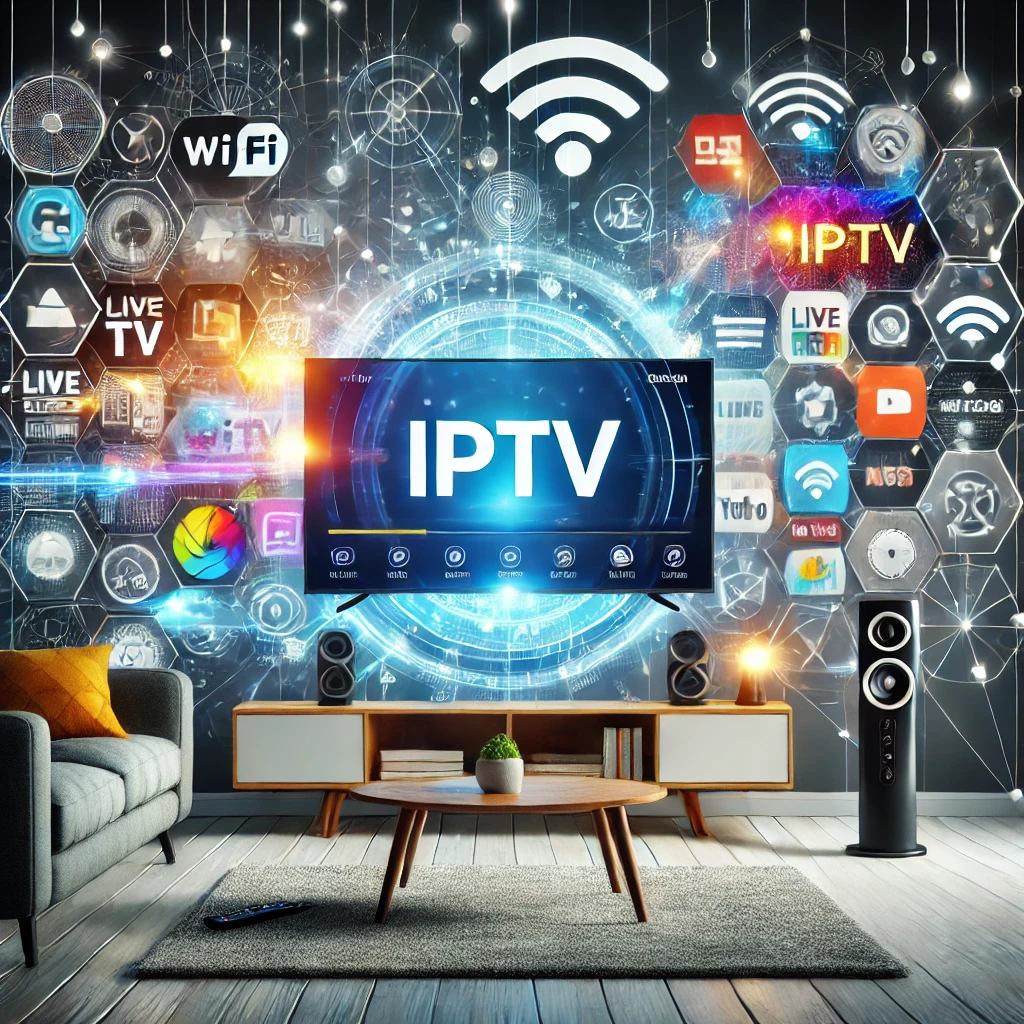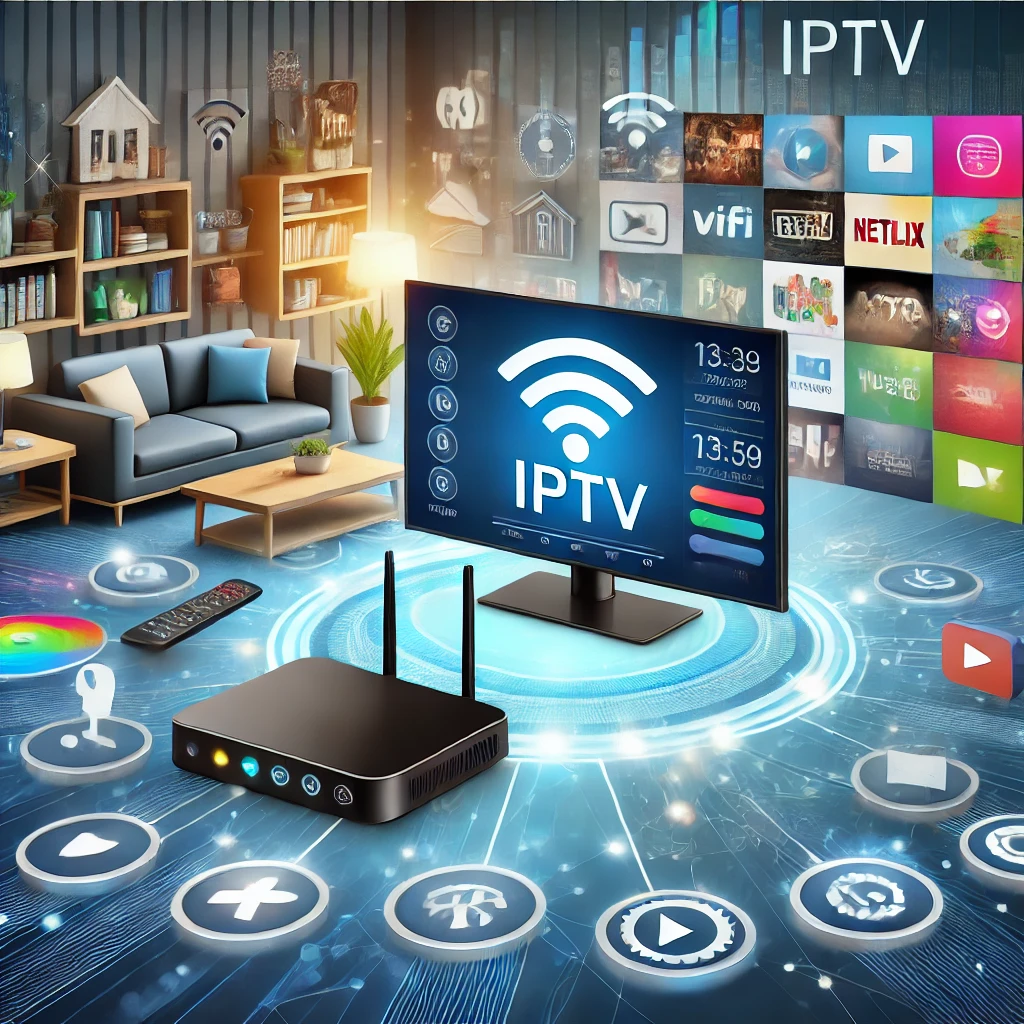this blog, we will take a closer look at what is IPTV, what is IPTV box, how it works & its architecture. We will also discuss the best IPTV devices, the types of IPTV services, the future of IPTV solutions, and everything else you need to know about IPTV.
Types of IPTV Formats & Services:
Apart from transmitting classic TV channels, IPTV has many other formats too, and hence it offers different types of IPTV services.
What is an IPTV Box?
An IPTV Box is a type of set-top box that can convert internet protocol signals into a format that can be read and interpreted by your TV. It is important because your TV does not have any built-in system to interpret the signals received via the Internet. Thus, these IPTV Boxes play a crucial role in this process, as they act as a bridge between your TV and the internet.
What is IPTV?
refers to television content that is delivered over an Internet Protocol (IP) network, rather than through traditional satellite or cable television formats. It can deliver both live and on-demand content. IPTV allows users to stream different types of media content, such as live TV channels, movies, and videos.
How is IPTV different from Traditional TV..?
To understand how IPTV is different from traditional TV, let’s compare the traditional mode of viewing TV with IPTV –

How Does IPTV Work..?
IPTV is much more similar to browsing the internet than traditional channel surfing. It merely uses IP (Internet Protocol), a transport protocol that is a delivery mechanism to deliver the videos to the viewer;
How Does IPTV Work From the Viewer’s End. ?
When the viewer subscribes to a particular IPTV service they are provided with the service’s specific Set Top Box (STB).A set-top box is a piece of endpoint equipment that decodes and decrypts TV and VOD streams for display on the TV screen. This STB is connected to the viewers’ internet connection (router) and uses the internet to deliver the video and TV content to the viewer.
Architecture Diagram of a Typical IPTV Network:
Broadcast content from Satellites and Local Antennas is received by the central unit. The central unit is where live TV channels and AV sources are encoded, encrypted, and delivered in the form of IP multicast streams.
Is IPTV Subscription Legal in the US?
IPTV Subscription, and IPTV service in general, is legal as long as the IPTV service provider has the license to stream the content that it intends to show. We know that every content has a copyright license. And if the IPTV service provider streams the shows without due permission from the copyright owners, then it will be definitely illegal.
Market Size and Future of IPTV:
IPTV has been on a continuous growth path in the last few years. The global IPTV market, which stood at US$ 50.9 billion in 2021, is expected to reach US$ 115.2 billion in 2026. Hence, the market size of IPTV will grow at a CAGR of 17.8% during this time.

Cons of IPTV.
It requires a high-speed internet connection, so people in remote areas who don’t have access to high-speed wifi cannot use it properly. IPTV can be lagging at times, and can even show outages, due to network issues, device incompatibility, and many other reasons.
What Are The Pros and Cons of IPTV?
Every system has its pros and cons, and IPTV is not an exception. It has a lot of benefits for the users, let’s take a look at some of them first.
Best IPTV Devices:
So, now you must be wondering, which will be the best IPTV Box (or IPTV device) for you, right? In today’s scenario, many companies have come up with quality IPTV boxes and devices, so it is really difficult to choose.
Devices That Work With IPTV Services:
The specific name or type of devices that will work might vary depending on which IPTV service you are using. But, in general, IPTV services are usually compatible with a large number of devices, like:Android Phones and TVsMAC PCs, iOS devices, and phones

Pros of IPTV:
It requires a high-speed internet connection, so people in remote areas who don’t have access to high-speed wifi cannot use it properly. IPTV can be lagging at times, and can even show outages, due to network issues, device incompatibility, and many other reasons.
Wrapping Up:
We hope we have helped you to understand What is IPTV and how it works? And if you are intending to start your own streaming service, then we have got the perfect solution for yo…
IPTV Architecture:
Depending on the network architecture of the service provider, there are two main types of IPTV architecture that can be considered for IPTV deployment: centralized and distributed.The centralized architecture model is a relatively simple and easy-to-manage solution. Because all media content is stored on centralized servers, it does not require a comprehensive content distribution system.
